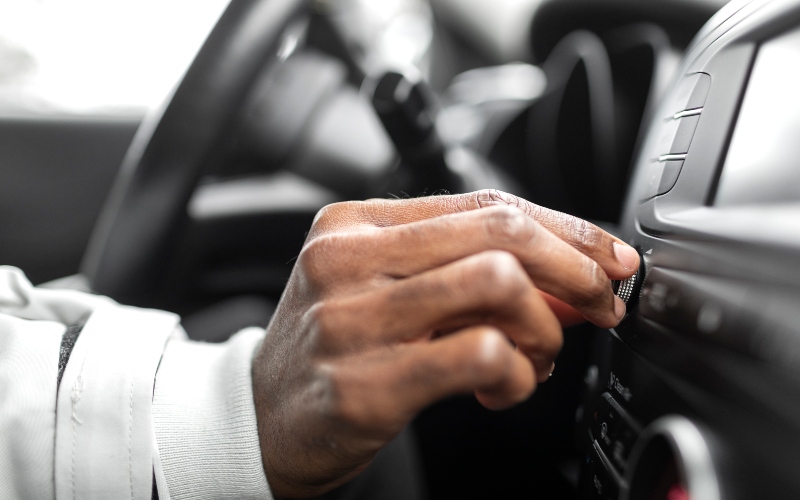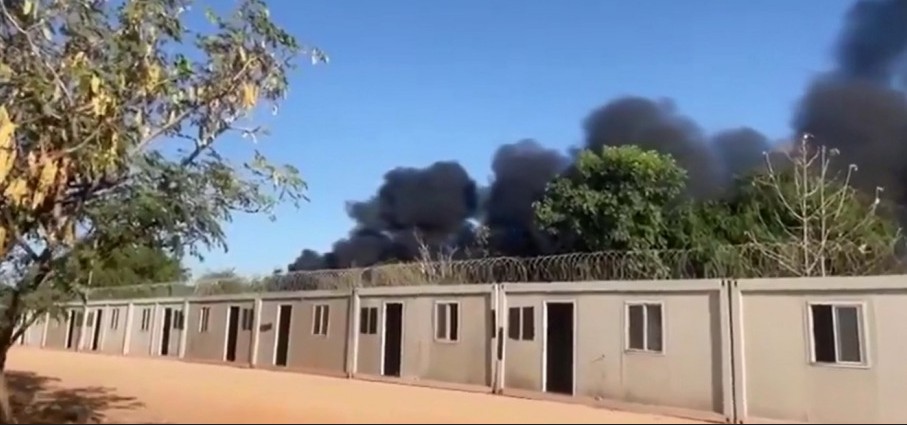Before you turn the key: What every car renter should know

The roar of engines and a steady rise in tourism have propelled Kenya’s car rental industry into high gear. From safari-bound tourists to local business travellers, more Kenyans are opting to rent rather than own.
But behind the convenience of app-based bookings and gleaming SUVs, travel experts warn that uninformed renters face hidden costs, insurance gaps, and legal surprises.
More To Read
- Cars registered before 2019 must reach Kenyan ports by December 2025 - KEBS
- 10 things that make you a nightmare cab passenger in Nairobi
- Expatriate exodus reshapes Nairobi housing market, driving rents down and property prices up
- Motor vehicle sales soar as lending rates fall amid economic recovery
- Motor vehicle insurance tops fraud cases in Kenya - IRA report
- Mounting violence in South Africa's Cape Town prompts closure of taxi routes
In an exclusive interview with The Eastleigh Voice, travel consultant Joseph Chege, co-founder of Hakuna Matata Chauffeurs, outlines what every traveller, local or foreign, should know before signing a rental agreement.
1. Don’t just look at the price - check the paperwork
Chege, whose Nairobi-based firm offers chauffeured and self-drive rentals across East Africa, says many customers focus solely on price and vehicle type, a costly mistake.
“Many people go for the cheapest deal online and ignore the terms,” he says. “A Sh5,000 discount today can turn into a Sh50,000 bill tomorrow if you didn’t check what’s included, like insurance, mileage limits, or breakdown support.”
He advises customers to request a written contract, review insurance clauses, and ensure VAT and service fees are clearly stated before payment.
“Transparency is everything,” he adds. “If a company can’t explain their charges line by line, walk away.”
2. Understand your insurance cover
One of the biggest shocks renters face, Chege says, comes after accidents or theft.
“Basic rental insurance in Kenya usually only covers third-party damage. That means if the car is stolen or damaged, you could still be liable.”
He recommends requesting comprehensive cover or a collision damage waiver (CDW), confirming the excess amount, and checking whether windscreen and tyre damage are included.
“Many renters assume ‘fully insured’ means they’re safe,” he notes. “But in Kenya, that phrase can be misleading. Always read the small print.”
3. Inspect the vehicle - then take photos
Before driving off, Chege insists on a full visual inspection, often skipped by hurried travellers.
“Walk around the car with your phone camera before you sign anything,” he says. “Take pictures of scratches, dents, even small chips on the windscreen.”
He advises keeping digital records, including the rental form and inspection photos, until the car is returned and cleared. Tyres, wipers, brakes, and oil levels should also be checked.
“Many rentals come with an empty tank, too,” he adds. “Visit a petrol station first before hitting the road.”
4. Tourists must understand Kenyan road realities
For tourists exploring Kenya’s scenic routes, from the Maasai Mara to Diani Beach, Chege offers both encouragement and caution.
“Kenya’s roads are some of the most beautiful in Africa, but also some of the most unpredictable,” he warns.
He recommends 4x4s for national park trips, avoiding night driving outside major cities, and always carrying a valid driving licence and passport copy.
International visitors should obtain an International Driving Permit (IDP) and confirm the car has a spare tyre, jack, and safety triangle.
“Also be aware that in Kenya, people drive on the left-hand side of the road,” he says. “Visitors from right-hand driving countries often veer into the wrong lane.”
Navigation apps like Google Maps can help, and Chege suggests a short practice drive near the hotel before embarking on longer journeys.
5. Fuel and mileage policies can be tricky
Fuel and mileage rules are among the most misunderstood aspects of car rentals, Chege says.
“In Kenya, most firms use a ‘same-to-same’ fuel policy, you return the car with the same amount of fuel you got it with. But if you bring it back half-empty, refuelling charges are often double the pump price.”
He advises asking whether the rental includes unlimited mileage, especially for long drives to Kisumu, Nanyuki, or the Coast. Some companies impose hidden distance limits or fees for inter-county travel.
“Some cars have GPS trackers and may flag you if you drive beyond agreed zones,” he adds.
6. Trust and reputation matter
In an era of online bookings, Chege says reputation is everything.
“Choose a company that’s licensed, reviewed, and reachable,” he advises. “If something goes wrong in Nakuru at midnight, you’ll want a company that answers your call.”
He recommends checking reviews on Google, TripAdvisor, or local social media groups, and ensuring the company has physical offices and a 24-hour support line.
“There are so many scammers online,” he warns. “Once you do a thorough check online, go to the yard physically.”
7. For locals: Renting is the new owning
Chege notes that most new clients are Kenyan residents renting for weddings, business trips, or short holidays.
“The mindset is changing,” he says. “People are realising they don’t need to buy a car to enjoy one.”
Martin Gawo, a local renter, says the experience helped him make a smarter financial decision.
“Renting a car helped me figure out what I really wanted before buying one,” he tells The Eastleigh Voice. “I used to think I needed a big SUV, but realised a compact car suits my routine and budget better.”
Gawo says flexible rental plans allowed him to compare different car types before committing.
“It’s like dating before marriage,” he jokes. “You get to know what works for you without the lifetime bills.”
However, Chege’s final words are a reminder that convenience should never replace caution.
“Renting a car gives you freedom, but freedom comes with responsibility,” he says. “Understand the terms, respect the roads, and treat the car as if it were your own.”
Top Stories Today













































